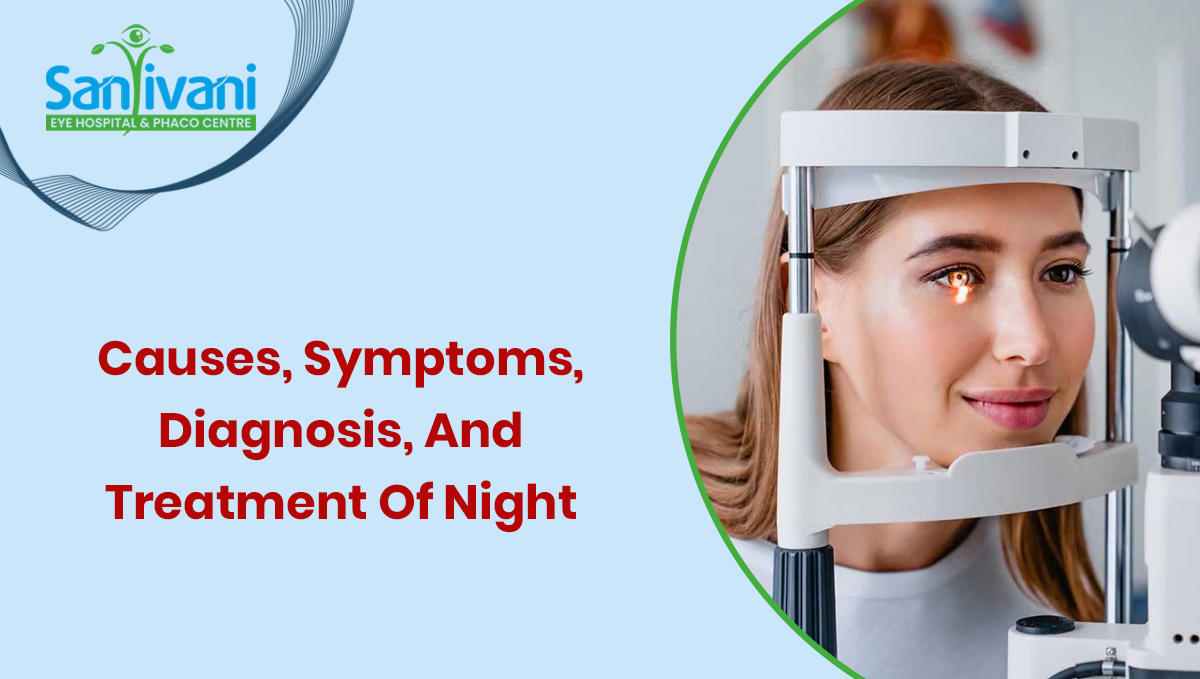
Causes, symptoms, diagnosis, and treatment of night blindness
The inability to see well at night or in poor lighting is known as night blindness (Nyctalopia). Although serious retinal problems are relatively widespread among humans, they are not a disease. It is typical for a patient with myopia to experience these symptoms. This is an optical problem rather than a retinal disease. It is a specific type of visual impairment. People who are confronting it experience blurred eyesight at night or in poorly lit areas. Night blindness is considerably different from regular blindness. A vitamin A shortage results in night blindness, which is both treatable and reversible.
Night blindness causes
The retinal cells that allow you to see in low light are afflicted, which is the root of the issue. Its causes are numerous:
- 1. Blindness is brought on by cataracts, which occur when the lens becomes clouded and reduces the amount of light that may flow through it before completely obstructing it.
- 2. Drugs like those prescribed for glaucoma, which constrict the pupil and lessen the amount of light that can enter the eye.
- 3. Impaired night vision and the development of halos surrounding lights are occasionally negative effects of LASIK surgery. Before having LASIK, there is a test to determine the likelihood of this occurring.
- 4. Contrary to popular opinion, a rare cause of night blindness is a lack of vitamin A. Rhodopsin, the pigment found in rods, cannot be replenished due to the deficit, as mentioned. Have healthy eyes to ensure you have clear vision.
- 5. Contrary to popular opinion, a rare cause of night blindness is a lack of vitamin A. Rhodopsin, the pigment found in rods, cannot be replenished due to the deficit, as mentioned. Have healthy eyes to ensure you have clear vision.
- 6. Another, more serious cause of blindness is diabetes. A poorly managed diabetes might cause diabetic retinopathy. In this case, damage to the tiny capillaries that supply the retina causes it to become unwell.
- 7. Blindness is caused by zinc deficiency. The co-nutrient zinc is essential for the eyes to be able to absorb vitamin A.
- 8. More sun exposure can potentially harm the retina, resulting in diminished night vision.
Risk elements Related Nutrients
Mineral Zinc : The transport of vitamin A from the liver to the retina requires zinc. Supplementing with zinc can help improve night vision, especially in people who are deficient in it.
Elemental vitamin A A lack of vitamin A is frequently to blame for night blindness. One of the most common symptoms of vitamin A deficiency, according to estimates.
Getting night blindness treated
- 1. Typically, treating the underlying illness that is causing night blindness is part of treating poor night vision
- 2. By using eyeglasses or contact lenses for vision correction, myopia will be controlled
- 3. The simple operation of cataract surgery improves vision, reduces night blindness, and removes the cloudiness on the eye lens.
- 4. Some medications, such as quinidine, which might cause night blindness, should be changed out for another medication.
- 5. For people who suffer birth injuries, the condition is ongoing and irreversible because there is no solution to the problem.
- 6. People who lack vitamin A should increase their intake of foods high in the vitamin.